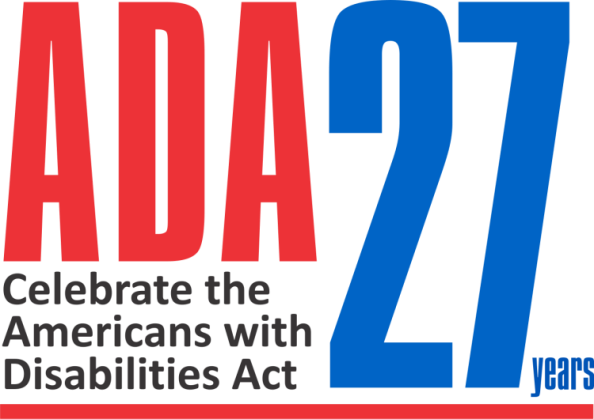This week we celebrate the 27th anniversary of the Americans with Disabilities Act (ADA) being signed into law by President George H. W. Bush. As many of you know, the ADA is a civil rights law prohibiting discrimination against individuals with disabilities in all areas of public life. This includes jobs, schools, transportation, and all public and private places that are open to the general public. The purpose of the law is to make sure that people with disabilities have the same rights and opportunities as everyone else. Through AFB's ongoing work to build on the landmark ADA and related laws, we are building a world of no limits where vision loss and disability are mere characteristics of social diversity—not used to justify discrimination.
Our family of sites provide many Advocacy Resources to familiarize yourself with ADA law. Knowing your civil rights helps in understanding why certain legislation is so important to the well-being of all Americans. Be sure to sign up for the DirectConnect newsletter to stay on top of public policy issues relating to blindness and visual impairment.
In her latest post, VisionAware Peer Advisor, Audrey Demmitt, R.N. asks, does a caregiver who is visually impaired have the right to receive accessible information? AFB CareerConnect shares an employee's evolving perspective and understanding of the ADA. Deborah Kendrick's AccessWorld article on self-advocacy in the healthcare system highlights ways to communicate in medical situations as a person with visual impairments. Steven Wilson's story of being a single father who is deafblind provides a first-hand look at how ADA law has helped a parent overcome situations of exclusion in providing for his children's education.
Join AFB's advocacy efforts as we collaborate with policy makers in Congress and the Executive Branch to ensure Americans with vision loss have equal rights and opportunities to fully participate in society.
